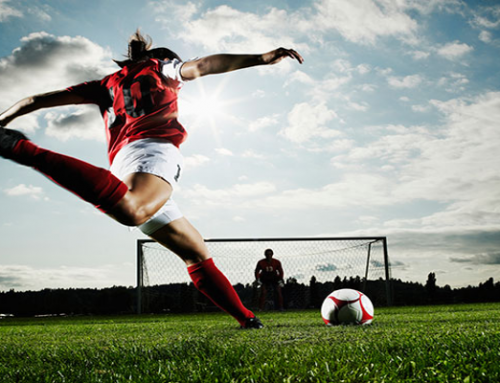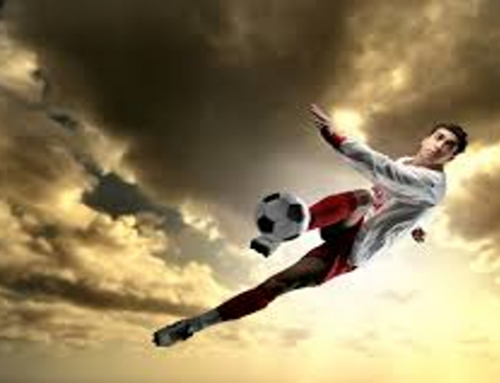As a sport psychologist there are many areas of football that I’m not an expert on. I have an appreciation for tactics but am certainly no Mourinho when it comes to understanding and implementing the tactics of the game. This is when I call in my coaching friends. In this article coach Ray Power explains the psychology of the Counter Attack. Here is a pic of his new book BTW:
Although not a new phenomenon, modern football has embraced the counter-attack as one of their main offensive weapons. All teams will plan and look at ways of attacking and scoring quickly once they have regained the ball from their opponent.
At the recent World Cup in Brazil, the counter-attack was responsible for 34 of the 171 goals scored, just slightly less than the amount scored from set-pieces.
Teams, depending on their strengths and technical ability, and their oppositions technical ability and game plan, will counter-attack in different ways. Some, like World champions Germany, look to press as near to the opponent’s goal as possible and regain the ball in their attacking third. Others though, as we will look at here, will sit deep, defend compactly and bravely, and look to counter-attack teams from deeper areas. Over the next few paragraphs we won’t just look at the way teams counter, but the mentality of using the tactic.
Teams that look to defend deep and counter-attack tend to be:
1) Inferior to their opponent in terms of technique and team quality
2) Already in a leading position on the scoreboard, knowing their opponent has to take more risks than them
We will look especially at the first one – where teams need to find a tactical way of competing with a technically more able opponent.
A team that sets out to defend deep and essentially allow their technically superior opponents to have the ball need to be mentally strong. They need to believe in a tactic that is reactive and allows strong opponents to have the ball. Imagine what the Iranian players felt in the minutes before they were set to face Messi, Di Maria and co – knowing and accepting that they would allow them to have the ball and advance into attacking areas! There is clearly a huge risk involved in allowing this to happen – and a huge likelihood that it could become unstuck.
Belief, preparation, concentration, team spirit, trust and discipline are amongst all the mental qualities required to play with this risky tactic.
A number of years ago my own team were being overrun in the early stages of a game, so we changed our tactics and began to defend in our own half. We sought to win the ball back later than usual – and strike the opposition with swift counter-attacks. Unfortunately one player – just one – decided not to comply. He pressed and pressed which not only took him out of the game, but compromised the positioning of his team mates. He was withdrawn from the game for a period and walked through our new plan.
When it Goes Wrong
In ‘Soccer Tactics 2014 – What the World Cup Taught Us’ we look at the effects when this risky tactic goes wrong. It can lead to a one-sided game where a strong team can run out comfortable winners.
One game springs to mind immediately – the group fixture between Greece and Colombia.
Greece, notorious for a strong defence and using counter-attacks and set-plays to win games – often doing so 1-0, set up to defend and contain the talented Colombians.
Within five minutes however, Pablo Armero had put the South Americans into the lead. With that, Colombia negated possession, allowed Greece a substantial amount of the ball – forcing the Europeans to open up and attack – something they struggled to do in terms of forward play and creativity. They simply did not have a credible Plan B to break Colombia down and were ultimately beaten comfortably 3-0.
The mental shift to change from a defensive, counter-attacking mindset to a tactic where they would have most of the ball was too much for the Greeks. They did not have the technical ability nor psychological knowhow to change the game in their favour.
To counter attack from deep then, players, teams and coaches are required to show great mental skills like bravery and concentration. Preparation of this plan is vital, as is the preparation of a Plan B.
The tactic very nearly worked for Iran against Argentina. They had a second half penalty claim not given, and it was injury time before the world’s best player, Lionel Messi, broke through their resistance in the dying seconds. You can imagine the Iranian heartache at that point.
Mentally, the Iranian players will have experienced a conflict – immense pride at running The South Americans so close, yet the pain and regret of not quite being able to see it through. Enter their need to string leadership, mental strength and the ability to recover from setbacks – all essential ingredients for elite sports people.




